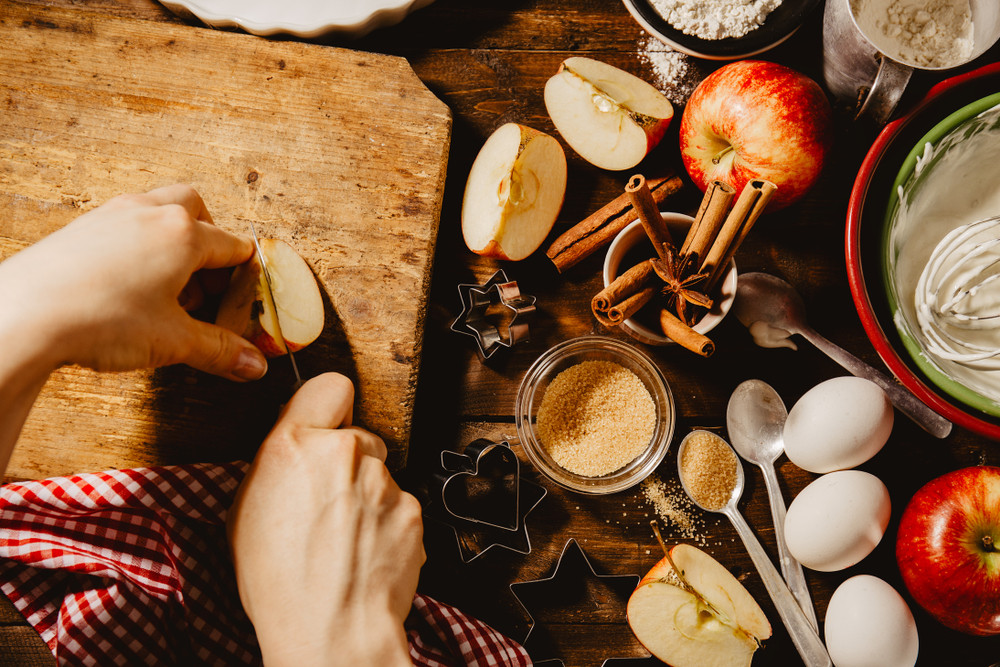By: Thomas Baker
Congratulations on achieving your weight loss goal! Now that you’ve crossed the finish line, it’s time to shift your focus to maintaining a healthy weight – but, it may not be as easy as you think. Some estimates suggest that between 80 and 95 percent of those who lose weight end up gaining it back, but who said that had to be you?
Tips to Maintain a Healthy Weight
Shift Your Mindset
Many people think their work is done once they reach their goal weight, but maintaining a healthy weight is often a challenge of its own. It takes a different approach to maintain your weight, especially when transitioning from a meal plan or worse – a calorie-restricted fad diet. The first step is shifting your mindset.
Chances are, your weight loss and/or meal plan gave you a pretty solid framework for what you were going to eat and when you were going to exercise. The focus was determination and dedication. Now, you’re going to shift your mindset over to mindfulness.
The amount of food you eat and how much physical activity you do are the two crucial factors in maintaining your healthy weight long-term. As you shift your mindset to maintenance, bit’s important to be mindful of the balance between those two factors and ensure they’re aligning with your goals.
- Are you eating more than your body needs while moving less?
- Are you moving more but not eating enough?
- Are you re-introducing foods or habits that don’t make you feel good?
Your TLS® Coach is a great resource during this time. They can help you find the balance you’re looking for without the guessing game that none of us really wants to play. 
Focus on Nutrition
One common mistake people make when they reach a healthy weight is reintroducing all the foods they weren’t eating during their weight-loss journey. With old foods rushing in all at once, we’re likely to fall back into old habits, and the scale starts to creep back up.
When you’re adding more food into your day, the foods you choose should be mostly healthy. Even with more wiggle room, focus on foods that are nutrient-dense. Your body still needs the healthy fuel it needed on your meal plan, but now is your chance to get creative with recipes and new foods you may have never tried before! For starters, you can start with a veggie-based recipe that incorporates a new sauce or fresh product from a local market! Since they’re low in calories but packed with nutrition, you’ve got tons of room to play and find out what tastes good.

Remember Portion Sizes
Even with the healthiest foods, eating too much can make it difficult to maintain a healthy weight. Most of us are going to want to add some treats back into our diet, and that’s fine! Just be mindful of portion size to help control your calorie intake.
If you’re not sure what to look for, check out our post on common portion mistakes to get yourself started!

Balance Is Key
Like we said, intake and exercise are two crucial factors in maintaining a healthy weight. You will need to increase your calories or move less to stop seeing the scale drop, but the key here is balance. Eat more than your body needs and you need more physical activity to balance it out. Exercise more than you’re eating and you’ll see the scale continue to drop.
Increasing your calories slightly each week will help you determine how much your body needs to maintain at this weight. To add calories slowly and allow your metabolism time to adjust, healthy snacks are a good option. Limiting your carb intake, especially quick and refined carbs, can help you maintain a healthy weight.
On the other side of maintaining a healthy weight, there’s exercise. You should always aim to be active for at least 150 minutes per week. The main objective of exercise is burning the same number of calories as you eat and drink. Burn more calories than you eat and drink, you’ll lose weight and if you burn fewer calories, you’ll gain. You’ll have to find that consistency and stick to it to maintain a healthy weight.

Hydrate
Always stay hydrated! Drinking more water has great benefits, both inside and out.
- A glass or two of water before a meal can promote fullness & satiety
- Drinking before a meal has been shown to help reduce your calorie intake by 13%
- Staying hydrated is known to slightly increase the number of calories that burn throughout the day
- Water improves your digestive system & reduces fluid retention (goodbye, bloating!).
Not to mention, even slight dehydration can lead to impaired digestion, lethargy, brain fog, and false hunger cues. Who knew something so simple could have such a drastic effect?

Get Enough Sleep
Getting enough sleep is another one of those healthy habits that can help you maintain a healthy weight. Try and get at least seven hours a night to optimize not only weight control, but overall health. Poor sleepers tend to be less motivated to exercise, and other studies have indicated that sleeplessness can reduce your resting metabolic rate and cause you to eat more the next day.

Changing your diet, exercise habits, and routines can be difficult at first. But, with the same consistency and dedication that got you to the finish line, you’ll be on your way to a new lifestyle with a healthier you!





Comments (0)